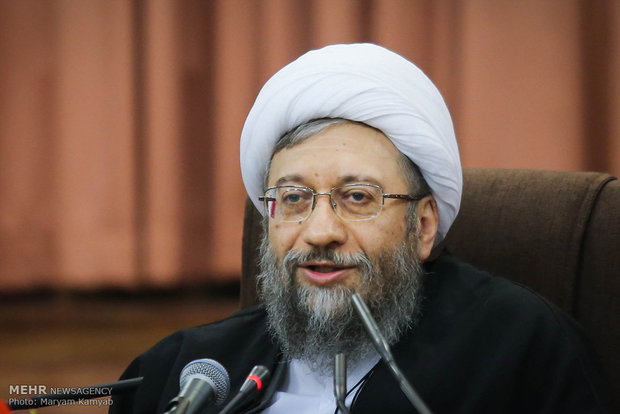Ayatollah Sadeq Amoli Larijani who was addressing a meeting of Judiciary high-ranking officials on Monday, believed that there had been some circles deviating from the general public; “national reconciliation would not be necessary, since there is no major rift in the society; however, if we assume it as viable, the deviants should join the public and the establishment, admitting their error of judgement; in such situation only would we see that they are welcomed,” he told the meeting.
“The public has gone its own way during 2009 presidential election unrest; this is the same social capital which appeared in the anniversary of Islamic Revolution in February 11 rallies; the problem is not the public, but the individuals who had deviated from the public path,” Ayatollah Amoli Larijani asserted. “Those individuals should renounce their past positions and admit that they had been in league with enemies and the propaganda devised to weaken the Islamic system.”
Reformists recently raised calls for ‘national reconciliation,’ and the foremost speaker was former President Seyed Mohammad Khatami. The proposal incited mixed reactions including opposition and was interpreted far differently than it might have sought in practice. Main figures in Principlist front are still cautios enough not to take any particular stance, but a former Principlist MP Rouhollah Hosseinian told reporters on Sunday that Reformist calls for national reconciliation sought only to voice the demand that the house arrest of heads of seditionists of 2009 presidential election be lifted. While some reformists try to elaborate the idea in form of a demand of the reformists from the Establishment, there are reports that Khatami is intending to write a letter to the Leader to apologize for and distance himself from 2009 post-election unrests.
Whatever the motives behind the calls for reconciliation, it is clear that after death of Ayatollah Hashemi Rafsanjani, the Reformist-Moderates lost an important mouthpiece who had been actively engaged in negotiations with the Leader of the Islamic Revolution, voicing their grievances and mediated to the good effect. Now, as Mehdi Ansari, a cleric Reformist, believes, contacts of any sort could help Reformists greatly to remain inside the circle the Leader and the core of the Establishment provides the center for. Mr. Ansari speaking to Mehr News on Monday, said that contacts with the Leader should be sought in more effective ways to represent the concerns of the Reformists. He added that currently, some figures, including President Hassan Rouhani, function as Ayatollah Rafsanjani had done in the past, but yet “we should not keep a distance with the Leader if we are to serve the nation effectively in any position,” he added.
SH/3903789/3904883/3906094

























Your Comment